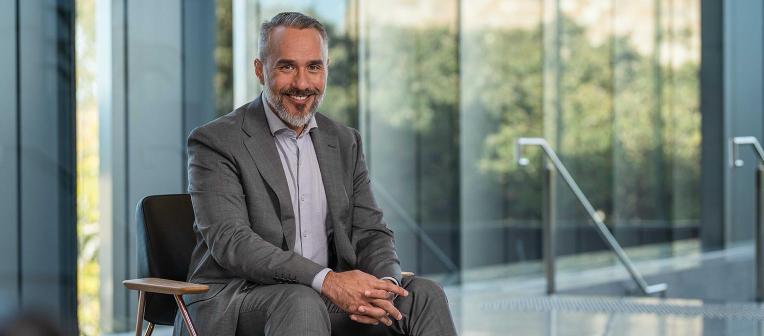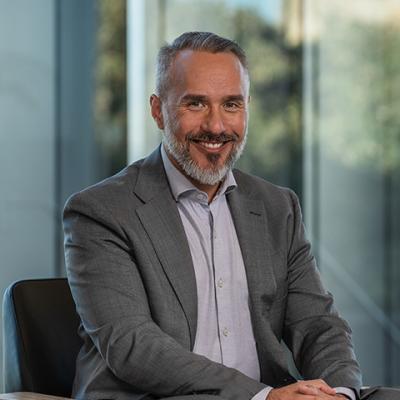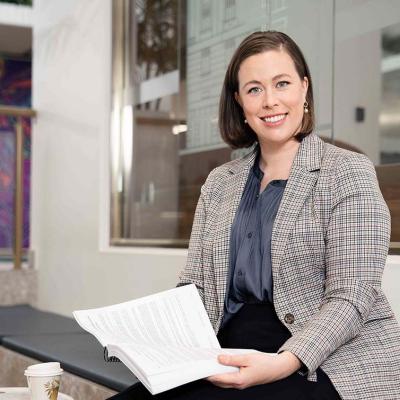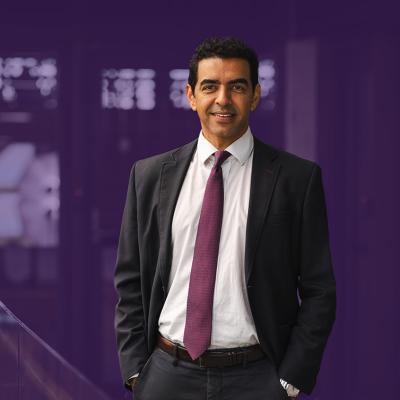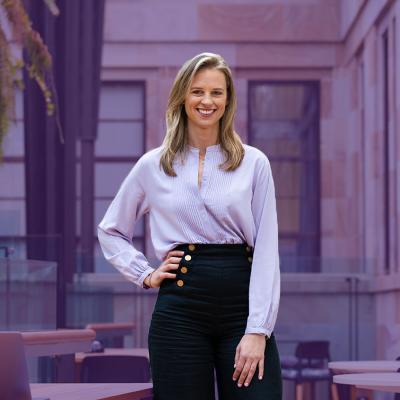Matthew Jones, a Torres Strait Islander man whose family is from Darnley Island, knows there’s still a long way to go before Indigenous Australians have equal access to education and subsequent job outcomes.
That’s why he’s so passionate about using his Master of Business Administration (MBA) to give back to the community and empower others.
“For my father to go to primary school, he had to carry an exemption certificate,” says Matthew.
“My family weren't allowed to live within the boundaries of town. All cultural occasions and events, including those involving language, had to be done at night and weren't allowed to be witnessed. That's in living memory.
“When I went to high school, I had a 20% or so chance of completing high school and about a 3% chance of going to university. That was only about 20 years ago. So, for me, we're still very much growing and changing narratives.”
Despite the statistics stacked against him, Matthew did indeed graduate high school and university. He then went on to become the 9th Indigenous Australian admitted as a full member to the Chartered Accountants Australia and New Zealand.
But he knew there was still more he could achieve.
Why the UQ MBA?
With his eyes set on becoming one of the first Indigenous Australians to sit on a listed board, Matthew spent time browsing the bios of different board members. It didn’t take long for him to spot a pattern: most of them had an MBA.
When thinking about which university to choose for his MBA, Matthew considered what scholarships were available.
“This was important to me as I had a young family and money was always tight,” he says.
“I think UQ had probably some of the most competitive scholarships on offer.”
Matthew received one of the several scholarships offered to new MBA students, which covered 25% of his MBA tuition fees.
But cost wasn’t the only factor he had to consider.
Juggling study with full-time work, cultural obligations and being a parent was also a challenge Matthew had to overcome.
“One of the things that helped me juggle my competing priorities was the variable course delivery,” he says.
“I took a couple of subjects on weeknights if I thought I needed a greater amount of time to learn.”
"I found the weekend intensives over a 6-week period to be quite useful for me. The flexibility of the program allows you to fit the subject into your schedule to match your current priorities.”
Pivoting from employee to business owner
In the final semester of his MBA, Matthew achieved his goal and successfully landed his first executive role. Unfortunately, the company he worked for was heavily impacted by the pandemic and was dissolved in 2021.
“It was in the middle of the COVID lockdown,” he says.
“I had 3 small kids to feed, and I didn't have a job… so, I decided to launch my own consulting firm.”
Using everything he learned during his MBA, Matthew was able to pivot and start his own management consulting company, MALU.
Why MALU?
“MALU is a Torres Strait Island Creole word that means deep water, which is the closest I could get to blue water. It ties into my Navy heritage as well as my cultural heritage. It's about going on the journey and taking my clients to blue water markets or fishing sites.”
“The MBA network led to my first executive role,” says Matthew.
“It also gave me the confidence and ability to launch my own consulting firm during the middle of a COVID lockdown when networking was almost impossible.”
The importance of giving back
Matthew also credits the MBA network with helping him get his first board roles.
“I think the value of the MBA lies in the network you establish,” he says.
“It was by talking to my connections that I found out about the opportunity to gain my board roles.”
“One of the strengths of the MBA program is the cohort. You get to work with some amazing, high-performing individuals.”
“With my cultural heritage as an Indigenous Australian, it's very important that I give back to my community,” says Matthew.
“One of the reasons you’d study an MBA is to push forward your own career. But there are several people in the community who can benefit from your wonderful, diverse range of skills.
“A rising tide lifts all boats. I believe that if you’re moving up, you should help others do the same.”
For Matthew, this plays out through his work at MALU and his service as a non-executive director on two not-for-profit boards:
- Aboriginal Community Housing Limited
- DVConnect QLD.
“For 2 years, I was on the board for DVConnect QLD, which helps women in domestic violence situations escape, rehabilitate and recover,” he says.
“I’m also a board member of Aboriginal Community Housing Limited, which helps identify and retain affordable housing for the disadvantaged.
“The reason I’m involved in these boards is very clear. It’s because there's an over-representation of Indigenous Australians in both of those situations. I've got a wonderful education, which was denied to my family. So, where I can, I want to pay it forward.
“I think there's a misconception that MBA skills are only applicable to the corporate world. But nothing could be further from the truth. The skills and network you gain during the MBA are just as valuable in the not-for-profit space. If you're looking to raise funds or strengthen your board with corporate governance, you can pick up the phone, go through the MBA alumni list, and you'll find your answer there.”
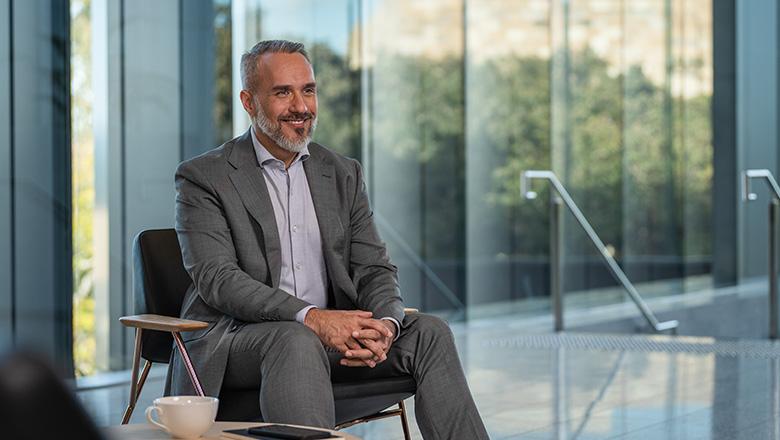
The MBA doesn’t just transform your business leadership skills; it transforms you.
Matthew admits that, like many MBA students, he started the program wanting to finish it as fast as possible. But after some advice from a colleague, his mindset changed, and he decided to enjoy the journey along the way.
“My reason for studying evolved to wanting to broaden and diversify my knowledge,” he says.
“I also wanted to learn how to be the best version of myself.”
The MBA is a generalist program designed to give students skills across different areas of business. But Matthew says he was still able to tailor his assessment to his interests.
“I'm very interested in the role of data analytics in making decisions in soccer,” he says.
“I'm also interested in how a coach can facilitate effective communication and teamwork between diverse players. My lecturer was supportive of me researching this topic for an assignment, and it was a lot of fun.”
Matthew also had the opportunity to apply the skills and knowledge he was learning in the MBA to his work.
“Within 6 months of graduation, COVID-19 hit, and it completely disrupted supply chains and materially reduced overall revenue, necessitating a workforce reduction of 67%,” he says.
“Using everything I learned during my MBA, I wrote a white paper that identified a business strategy pivot and presented it to the board for approval. There were several opposing views at the meeting, but my recommendation was selected as my projected financial modelling demonstrated a 15% uplift in gross revenue and a 10% margin improvement that also strengthened net profit.
“As I had presented the paper, I was made responsible for executing the plan in addition to my day-to-day responsibilities.”
It’s not just the network, skills and experience Matthew gained during the MBA that helped move his career forward.
“Four years after completing the UQ MBA, I've had time to really reflect on how it initiated change,” he said.
“For me, the biggest change occurred around the confidence in my capabilities. Your capabilities may not be extended in your day-to-day job. But during the MBA they will, and that will give you the confidence to pursue your dreams."

